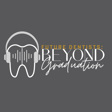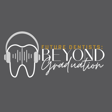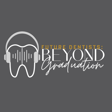
Insurance Will Never Cover That: Navigating Dental Insurance Challenges Beyond Graduation
About the Hosts:
Drs. Savanah Craig and Ronnetta Sartor are the hosts of "Beyond Graduation," a podcast that delves into the real-life experiences of dentists navigating the early years of their careers post-graduation. Dr. Craig is a practicing dentist who emphasizes the practical challenges and triumphs faced by dental practitioners. Dr. Sartor, also a dentist, shares her expertise and insights, particularly in areas concerning insurance and practice management. Both bring a wealth of knowledge, engaging in meaningful conversations that inspire and educate up-and-coming dental professionals.
Episode Summary:
In this engaging episode of "Beyond Graduation," hosts Drs. Savanah Craig and Ronnetta Sartor tackle the complexities of navigating dental insurance, a topic of paramount importance for new practitioners. This dialogue is both a refresher and an eye-opener, catering to those fresh out of dental school and adjusting to the nuances of practice management where insurance plays a pivotal role. As they unravel the intricacies of insurance narratives, coding, and patient communication, listeners gain insight into how these elements fit into the larger puzzle of running a successful dental practice.
They dissect the challenges dentists face when insurance coverage dictates treatment decisions. They offer practical advice on managing patient expectations and legal obligations while staying true to quality care principles. This episode underscores the distinction between in-network and out-of-network practices, shedding light on the operational and financial implications of each. Whether you're grappling with the daunting task of learning insurance coding or looking to shift your practice's insurance model, this episode provides valuable guidance to better equip yourself for the industry's demands.
Key Takeaways:
- The transition from dental school to private practice often lacks proper training on handling insurance, making self-education crucial.
- Mastering insurance codes and narratives is essential in defending treatment plans and optimizing billing.
- Communication with patients about insurance limitations without compromising on care standards is vital.
- Understanding the differences between in-network and out-of-network practices can significantly impact operational decisions.
- Leveraging intraoral photography and detailed clinical notes strengthens claims against insurance denials.
Connect with Us:
- Savanah Craig, DDS: @savanahcraigdds
- Ronnetta Sartor, DMD: @dr_sartor
- FutureDentists Beyond Graduation: @futuredentistsbeyondgraduation
- FutureDentists: @futuredentists
- IgniteDDS: @ignitedds and @ignitedds_coaching
- A-dec: @adecdental and https://www.a-dec.com/find-a-dealer
Dive into this insightful episode to navigate the convoluted world of dental insurance, fortified with shared experiences and expert advice from seasoned professionals. Tune in for more episodes that promise to illuminate, educate, and inspire budding dental practitioners.



